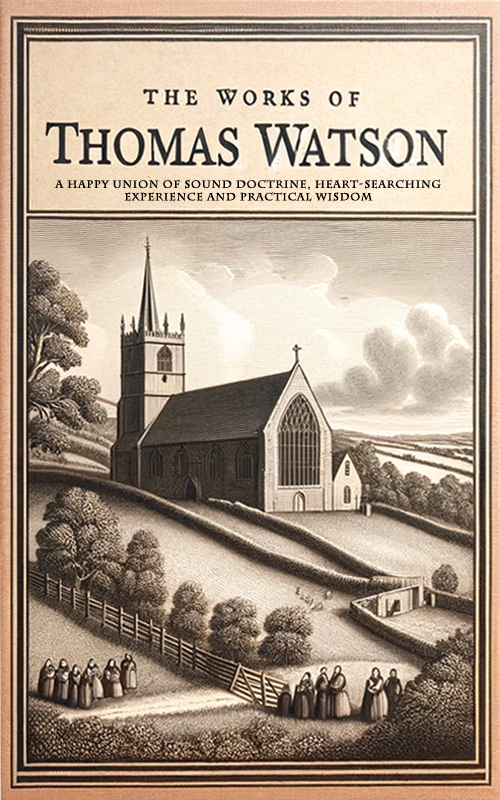 by Thomas Watson
by Thomas Watson
in ePub format
Thomas Watson, a prominent figure in the Puritan movement, was an English, Nonconformist, Puritan preacher and author. He lived through a significant period in English religious history, with his life and work reflecting the turbulent times of the 17th century.
Watson was born in 1620. Details about his early life are sparse, but it is known that he attended Emmanuel College, Cambridge, where he was particularly noted for his studious nature. Emmanuel College was a center for Puritan thought, which greatly influenced Watson's religious views.
After completing his education, Watson was a minister at St. Stephen's, Walbrook, in London. He was known for his powerful preaching and deep understanding of scripture. His tenure as a minister saw him gaining much respect and admiration from his congregation and peers.
Watson's ministry coincided with the English Civil War (1642–1651) and the Commonwealth period that followed. These were times of great religious and political upheaval, impacting the Church of England and its ministers significantly.
With the restoration of the monarchy in 1660 and the subsequent Act of Uniformity in 1662, Watson, like many Puritan ministers, faced persecution. The Act of Uniformity prescribed the form of public prayers, administration of sacraments, and other rites of the established Church of England. Nonconformists like Watson, who refused to comply with the Act, were ejected from their positions.
After his ejection, Watson continued to preach in private, as the law allowed, and became a part of the Nonconformist movement. He held secret meetings for worship and was known for his pastoral care, often risking his safety to minister to his flock.
Watson was a prolific writer, and his works are highly regarded in Christian literature. His writings are known for their clear exposition of Biblical texts, practical application, and devotional warmth. Some of his famous works include "The Body of Divinity", "The Ten Commandments", "The Beatitudes", and "The Lord's Prayer".
Thomas Watson continued his ministry until his death in 1686. Despite the challenges and persecutions he faced, Watson remained a devoted preacher and writer, influencing generations of Christians both during his life and posthumously through his writings.
Thomas Watson's legacy lies in his faithful adherence to Puritan beliefs, his eloquent and heartfelt preaching, and his extensive writings, which continue to be read and appreciated for their theological depth and practical wisdom.
-----
TABLE OF CONTENTS
Body of Practical Divinity
The Ten Commandments
The Lord's Prayer
The Beatitudes
The Godly Man's Picture
The Art of Divine Contentment
A Treatise Concerning Meditation
The Great Gain of Godliness
The Doctrine of Repentance
The Mischief of Sin
A Divine Cordial
The Christian Soldier
The Christian's Charter
The Duty of Self-Denial
